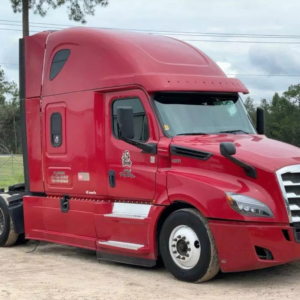Your engine is one of, if not the most important major component of your Truck. Without it working in good order, it’s impossible for you to go anywhere. If it runs inefficiently, you may face a whole host of problems that can be avoided with relatively simple maintenance.
Oil Changes
One of the simplest ways to determine the condition of your engine is to examine the oil that drains out during an oil change. The oil circulates through much of your engine, so it’s a great way to determine the overall health of your car’s power plant. Ideally, we want your oil to be darker than when it went in with uniform viscosity and no solid particles. Solid particles are a major concern because they mean that something inside the engine, be it a seal or anything else, is breaking apart. Engines contain a lot of finely balanced mechanisms with only a few micrometers of space for moving parts to clear each other. Any solid particles moving through your engine can cause a massive amount of damage very quickly.
Engine Coolant
Another simple item that can save your engine untold misery, is the coolant fluid, which keeps everything running at the correct temperature. The many moving parts inside your engine, as well as the explosions taking place within its combustion chambers, generate a significant amount of heat. As with any machine, your engine has temperature tolerances at which it happily operates. Once those tolerances are exceeded, things can start to go wrong. A common side effect of overheating can be radiator failure. The water that cools the engine becomes heated and pressurizes the radiator past a safe level causing the scalding water to spray out.
Filters
To work efficiently, your car’s engine needs the ingredients for combustion to be delivered in the purest form possible. To this end your engine contains a number of filters which keep everything nice and clean.
Fuel Injector Cleaning
Working alongside your spark plugs are the injectors that shoot a precise amount of fuel into the combustion chamber. Over time these injectors can become clogged with contaminants from fuel.
Accessory Belts
Engine accessories such as the alternator and air conditioning compressor rely on belts that take power from the engine to run them. Over time, these belts can become frayed and damaged. If your alternator belt snaps, for example, your engine won’t be able to generate the electricity it needs to charge the battery and keep itself running.
Check Engine Light
No one likes to see their car’s “Check Engine” light come on. The light could mean a costly problem, like a bad catalytic converter, or it could be something minor, like a loose gas cap.
Diesel
Although diesel engines don’t require tune-ups and tend to last longer than gasoline engines, they do require regular maintenance. Typical maintenance tasks include:
- Changing the oil & filter
- Changing the air filter
- Changing the fuel filter
- Bleeding the fuel system
- Draining the water separators
- Refilling the urea injection system
Fuel Injection
Fuel injection is a system for admitting fuel into an engine. Since 1990, fuel injectors have completely replaced carburetors as the primary means of getting gasoline into the engine. A fuel injector atomizes the fuel by forcibly pumping it through a small nozzle (under high pressure). Failure of the fuel injection system means poor performance and ultimately destroys the engine. Make sure your vehicle’s fuel injection system is maintained properly.
Ignition
An ignition system is a system for igniting (using an electric spark) a mixture of fuel and air in a gasoline engine. A properly working ignition system means a properly starting engine and high performance from your car.
Ignition Wires & Cables
Ignition cables also known as spark plug wires are an important part of your car’s ignition system. They transfer the spark from the ignition coil to spark plugs that ignite the mixture of fuel and air. The mixture starts the engine. Over time, ignition wires and cables get weak and break down. This makes it impossible for the spark to reach the engine cylinders. This results in the engine misfiring. The car will eventually fail to start. If it does start, it will run poorly. Common symptoms of faulty ignition cables and wires are: poor gas mileage, engine misfires, engine light is on, and engine may vibrate.
Oil, Lube, and Filter
To keep running smoothly, your car highly relies on oil, lube, and oil filters. Oil helps in lubricating, cooling, and cleaning the internal engine components. With time, motor oil becomes contaminated. Your car needs an oil, lube, and filter change every three months (or 3,000 miles).








